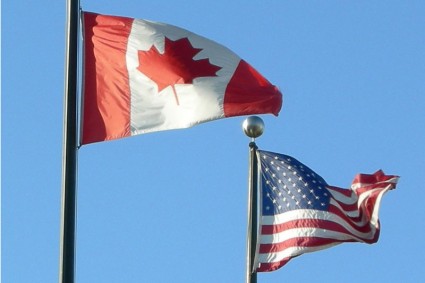
Robohub.org
Canada’s regulations for foreign commercial UAV operators

Source: Wikipedia
Canada’s relatively favorable framework for commercial UAV operations is attracting interest among foreign operators who are frustrated with restrictions in their home jurisdictions. The following provides a breakdown of Canadian regulations affecting foreign commercial operators…
Are foreign operators eligible to operate in Canada?
Foreign operators may conduct commercial operations in Canada if they are granted a Special Flight Operations Certificate (SFOC) from Transport Canada. To be considered a candidate for an SFOC to conduct a commercial operation, a foreign operator must demonstrate legal eligibility to operate in the operator’s home jurisdiction. For example, a US operator would require a Certificate of Waiver and Authorization (COA) or a Special Airworthiness Certificate (SAC) to be eligible to apply for an SFOC to conduct a commercial operation in Canada.
What options are available for foreign operators who aren’t legally eligible to operate in their home jurisdictions?
First, foreign operators who have no legal basis for operating in their home jurisdictions are permitted to conduct research and development operations in Canada under an SFOC. Such activities must be conducted at designated UAV test sites such as the CCUVS site recently approved in Southern Alberta. The CCUVS site operates under restricted airspace that spans 700 square nautical miles running up to 18,000 feet above sea level. Because the airspace is restricted, it is possible to complete more risky operations such as those conducted beyond visual line of sight.
Second, foreign operators who have no legal basis to operate in their home jurisdictions can set up a Canadian subsidiary through which they may conduct commercial operations. By establishing a Canadian corporate entity, operators can avoid the foreign eligibility requirements and apply through the normal SFOC process open to Canadian operators. For example, if a US corporation sets up a Canadian subsidiary, the Canadian entity can apply for an SFOC without having a COA or a SAC. Additionally, the Canadian entity would be eligible for the two new exemptions from the SFOC process (assuming the other exemption criteria are met).
If you liked this article, you may also be interested in:
- Transport Canada releases new framework for governing UAV operations
- Transport Canada relaxes commercial drone regulations, increases focus on academic use
- Commercial drone regulations: Canada vs. US
- Study shows most Americans are wary of commercial and personal drones
- Commercial drone use legal in USA? Who’s willing to make bail?
- Does the Small UAV industry need its own coalition?
- Snapshot of US UAV situation
See all the latest robotics news on Robohub, or sign up for our weekly newsletter.
tags: c-Aerial, Canada, cx-Business-Finance, cx-Politics-Law-Society, drone policy, drone regulation





